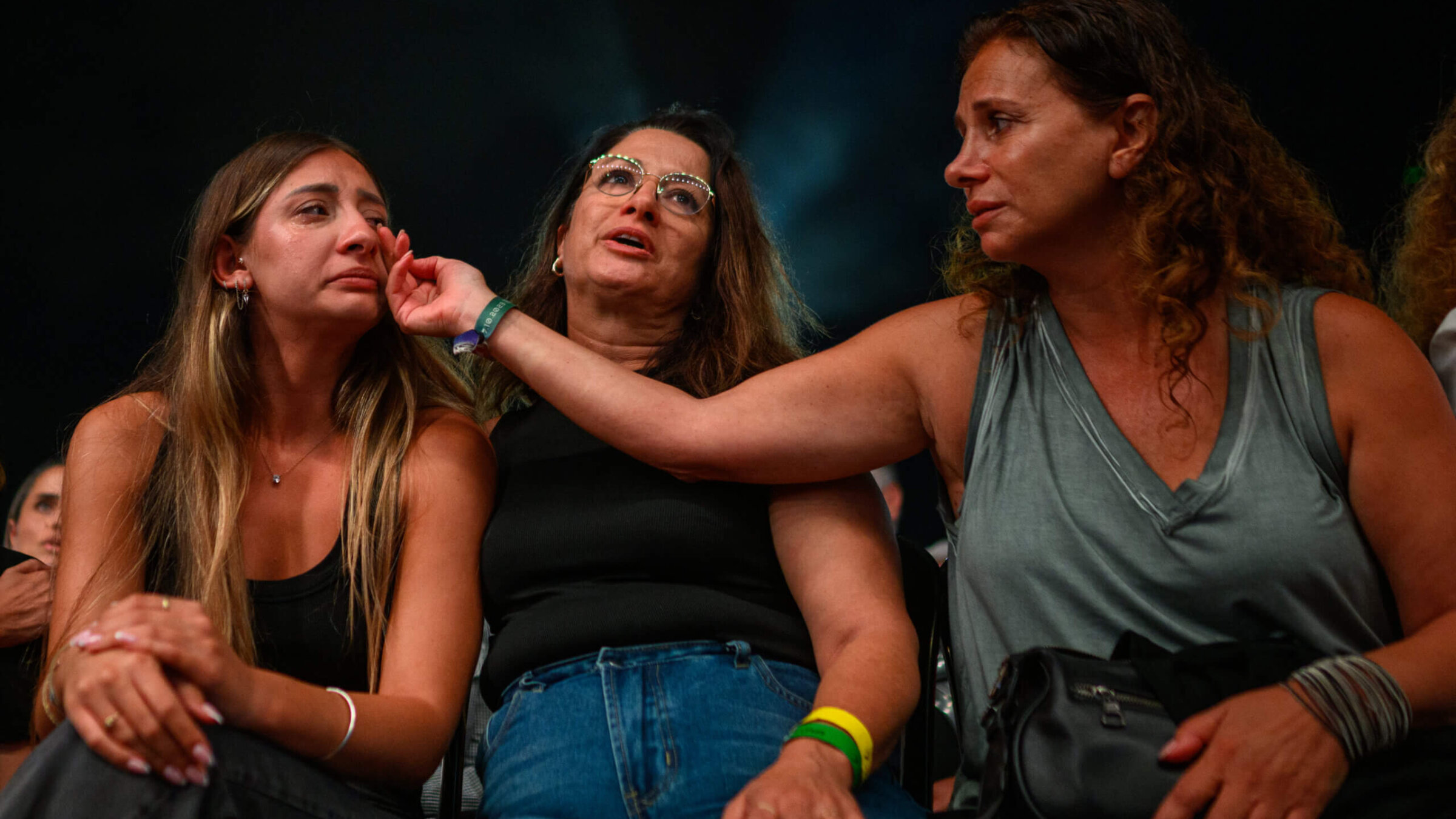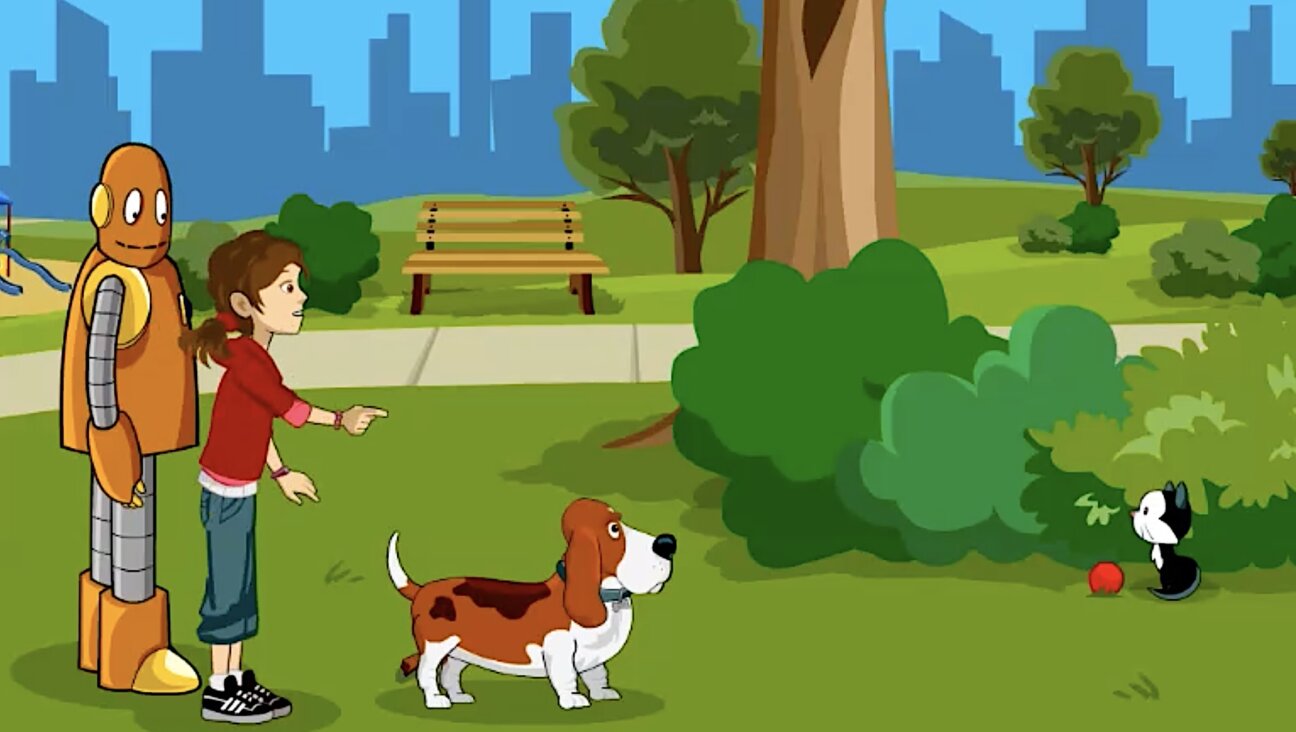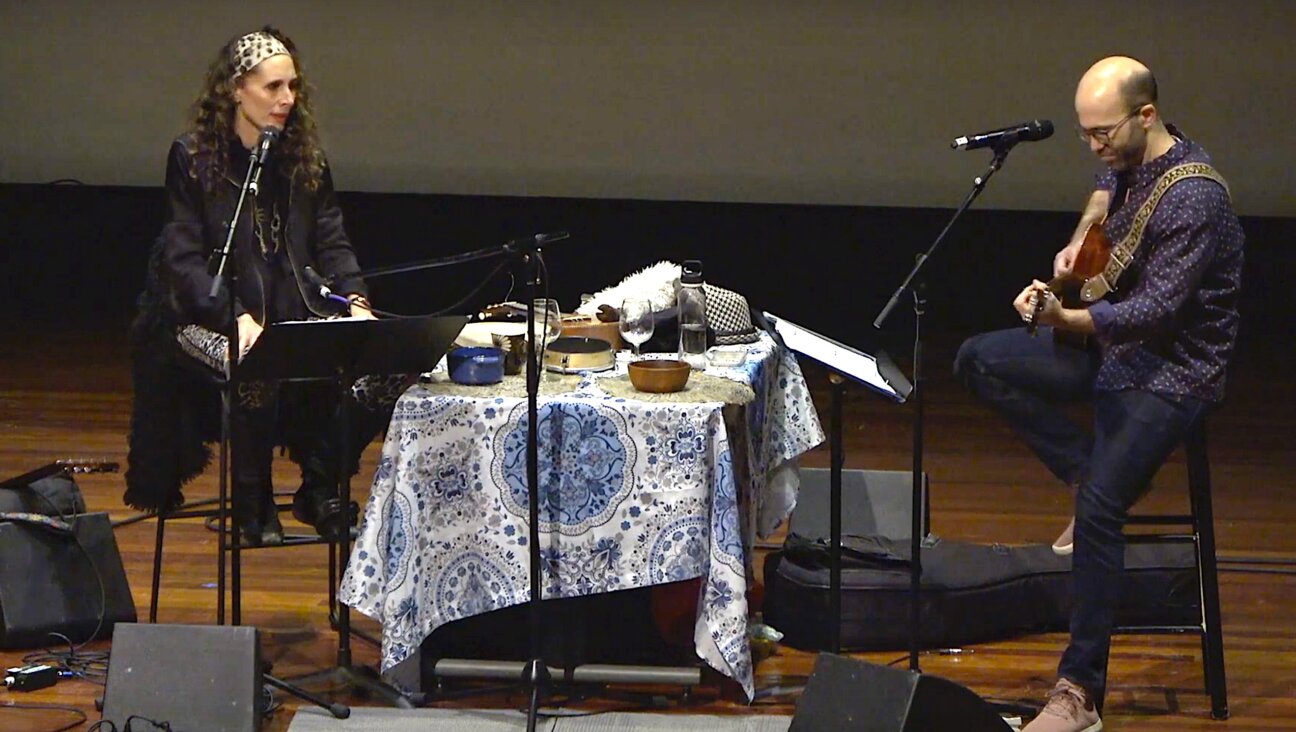Do anti-Zionist Yiddishists see the Hamas massacre of Jews as ‘resistance’?
As a second-generation Bundist, I find the theater collective GLYK’s pro-Palestinian alignment misguided

Relatives and friends of people killed on October 7th cry during the National ceremony commemorating the first anniversary since the attacks, at Park Hayarkon on October 07, 2024 in Tel Aviv, Israel Photo by Photo by Alexi J. Rosenfeld/Getty Images)
Re: “A painful split in the Yiddishist community since Oct. 7” by Rukhl Schaechter
To the editor:
The article mentions the queer Yiddish theater collective, GLYK, which has aligned itself “with Palestinians resisting nearly 12 months of rapidly escalating genocide following over a century of settler colonial violence and ethnic cleansing.”
As a second generation Bundist, I identify with and appreciate the humanist sentiments, but as an Israeli, I see GLYK’s pro-Palestinian alignment as completely misguided.
GLYK’s unfortunate statement is correct only about the duration of the war in Gaza, which, it must be remembered, began with the Hamas attack on Israel, when terrorists raped, tortured, murdered children in front of their parents and parents in front of their children, and kidnapped men, women and children.
The statement says nothing about the massacre of Jews by Hamas. Does this Yiddish theater collective celebrating a language that barely survived its enemies see the pogrom as a sign of “resistance”? Even understanding the motivations behind the attack doesn’t justify ignoring this atrocity or calling Israel’s military response a genocide.
The term ‘genocide’ has lost clarity, becoming a catch-all phrase used not only about the intentional extermination of an entire people like the Nazis’ Final Solution, but also for displacing an enemy population in a war zone. The word’s meaning has become so broad that it’s difficult to argue against.
Israel’s actions in Gaza were far from genocidal. Since Israel is at war with Hamas, and since Hamas embeds itself and its armaments among the Gazans in their homes, schools, hospitals, and tunnels stretching throughout Gaza, the Israel Defense Forces wound up killing many civilians.
Other problematic terms used by GLYK, such as “settler colonial violence” and “ethnic cleansing,” also obscure the reality. Present-day settler violence is indeed condemnable. But the Jewish homeland was established to end 2,000 years of exile, and it was repeated Arab attacks, not Israeli expansionism, that led to territorial conquests. Where was the humanitarian decency GLYK is calling for when the Jewish people were struggling and homeless?
I am dismayed by the quiet dismay of some in the Yiddishist community about the direction of GLYK, the dispute about mentioning Oct. 7 at a Holocaust commemoration, and the anxiety some people have expressed at Yiddish events where pro-Palestinian and pro-Israel sentiments collide.
I wonder what our Bundist parents would have thought of the decision to omit any reference to Oct. 7 at this year’s Warsaw Ghetto memorial in Riverside Park. Many of them were not staunch supporters of Zionism, but they wished Israel only well.
Surely gearing our traditions to resonate with the next generation must remain commensurate with the oath to never forget what the Nazis did to our people.
This is not the time, then, to be afraid to anger fellow members of the Yiddishist or broader Jewish community. As antisemitism and support for jihadist, undemocratic, illiberal forces rise, this is the time to be on the right side of history, toward positive change, mostly recently heralded by the elimination of Hassan Nasrallah and the weakening of Hezbollah. Supporting that change will validate progressive values.
That is why criticizing YIVO’s series on the origins and ideology of Hamas as biased is wrong. As an institute for Jewish research, YIVO’s responsibility is to share information about documented Nazi-Islamist collaboration and draw the appropriate parallels. Instead of seeking balance where there can be none, offering testimony in support of Israel should be praised, not condemned.
— Helen Paloge
Yiddish instructor, Haifa, Israel
Editor’s note: This letter has been condensed from the original published version to better adhere with our standards for Letters to the Editor.
The views and opinions expressed in this article are the author’s own and do not necessarily reflect those of the Forward.























